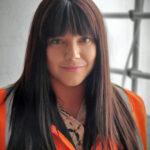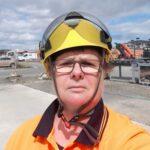International Women’s Day: Emotional intelligence – the secret weapons women are using to drive change in construction
We speak to three women who are shaking up the construction industry with new ways of thinking.
When Melissa Campbell visited a major construction project in central Auckland it was a team of female electricians who were the life and soul of the work site.
“They were spectacular,” says the Health and Safety Manager from leading construction company LT McGuinness.
“They had the best sense of humour, they worked hard, and they were personable, intelligent and strong – all the things you want from someone that you work with. We need more of that.”
This crew of female sparkies are an example of how the growing number of women in construction are bringing a new way of thinking and a different perspective that is driving a culture of change in the traditionally male-dominated industry.
And, believes Campbell and other influential women in the construction and trades sectors, this thinking and a woman’s unique skills, such as compassion and attention to detail, can help the industry to innovate, move forward, and build smarter.
“The female voice in construction is definitely louder,” says Campbell.
Campbell, who has worked in construction for 14 years, says companies are now looking to women for unique skills that brings something different to the industry.
“You’ve got to have different perspectives to innovate and to do things differently. A mix of cultures and ages are important and together with gender diversity, it brings the chance to challenge each other, to be competitive, and to innovate and bring new ideas into the fold.”
For Campbell, the unique skills females have, include empathy, planning capability, and attention to detail.
“There’s a huge push in the industry to recognise these skills and differences women bring and to use them to our advantage. A woman’s way of thinking is so incredibly different from a male.
“Everyone’s mental health is better for having women on construction sites because nine times out of 10 ten a woman is warm, welcoming, and compassionate.”
She believes a quality like attention to detail is essential for construction, especially from a safety perspective.
“A woman is not afraid to ask a question that may seem simplistic, but it is an essential question to ask. Every single woman I’ve ever worked with has a serious lack of major incidents or injuries to their name because they take more time, and they are more risk averse than some men.”
Times they are a changin’
When Campbell started at LT McGuinness seven years ago there were few women – now there are more than 30 female staff.
“For a long time, the biggest challenge for me was getting people to take me seriously as a young female in a management position. But the old school mentality around women being in construction is changing dramatically.”
 When Rebecca Gornall, Health and Safety Manager at Mansons TCLM Limited, first started her role in commercial construction six years ago she was one of the only females on site.
When Rebecca Gornall, Health and Safety Manager at Mansons TCLM Limited, first started her role in commercial construction six years ago she was one of the only females on site.
“Now there are a number of full-time female workers across all the sites I visit. This grows each year which will help with industry culture because it still has its traditional stereotypical construction tag. It’s a tough industry and there’s no political correctness involved. That’s where women’s soft skills, and their ability to negotiate and work as a team can help improve and advance the industry.”
Calling more women
After almost doubling since 2013, there has been a significant increase in the number of women joining the construction industry. However, they are still significantly underrepresented.
According to Statistics New Zealand, women make up around 15% of the trades and construction industry. That equates to around 250,000 men to 40,000 women. For on-the-tools work, that figure is only 4%.
Gornall, whose father, brother and partner are in construction, is encouraging more females to join what she says is an exciting and dynamic industry.
“Every day you go to a site it’s different and constantly changing. It’s an incredibly dynamic and exciting environment – and that’s what I love about it, no day is the same.”
Lynne Hill, Safety Adviser at Site Safe New Zealand, says women simply being in the industry is helping change the culture.
 “It is changing from the harden up and don’t cry culture to helping people. It’s all about being approachable. There are more women in health and safety roles in the industry because qualities like stability and consistency are key.
“It is changing from the harden up and don’t cry culture to helping people. It’s all about being approachable. There are more women in health and safety roles in the industry because qualities like stability and consistency are key.
“I just wish there were more women in construction. The more we get, then the better the culture will be. There will be less back chat, and it will become a normal environment for women to be, somewhere they can be themselves.”
Getting on with the job
Before working in construction, Hill served in the Air Force for 40 years.
“It never really entered my mind that construction was a male-dominated industry after the time I spent in the Air Force because there were women in combat, women pilots, and women doing a whole range of work.”
She is looking forward to the day when construction is not seen solely as a man’s job.
“You still hear the occasional comment about, ‘Oh well if we have females on site then I’m going to have to carry their load’. I beg to differ. I have seen some males that can’t carry as much as I can.
“Women are going into construction with their eyes wide open. They’re not blind to what construction is like and at the end of the day, I think you’ll find most women just get in there and do a great job.”
Leading construction safety and site management platform, HammerTech, hires staff based on who it believes brings the right skills, experience, and perspective to a role.
“As a business,” says CEO Ben Leach, “we don’t hire women because we need to hit a specific quota. However, it just so happens that about half of those hires are women.”
This year, to highlight how important women are to the industry, HammerTech is sponsoring the Women In Construction scholarship at the Site Safe 2024 Health, Safety, and Wellbeing Awards.
“In construction, women bring diversity not just through gender, but through critical thinking and leadership style. Employment opportunities are on the rise, career pathways are increasing, and the value of diversity is becoming more recognised in what has traditionally been a male dominated industry,” says Leach.
Gornall of Mansons says while a number of business industry leaders and managers are looking to employ more women, she is still a true believer in employing the right person for the job.
“It’s not about employing more females to catch up to the male dominated industry. It’s very much who is right for that role and the right fit for the team. I have worked alongside a number of women in construction, we definitely have unique skills, a real passion and a different way of thinking that has huge benefits for the industry.”



